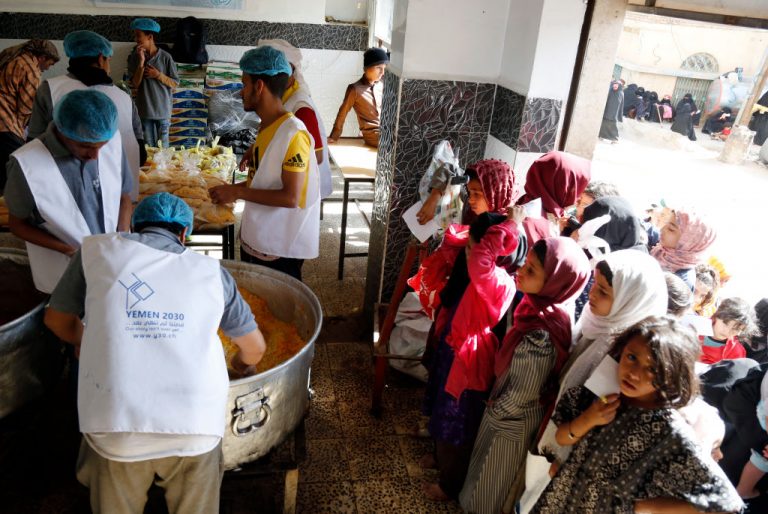Sarah Charles, assistant administrator for the U.S. Agency for International Development’s (USAID) Bureau for Humanitarian Assistance told a House Agriculture subcommittee on April 6 that the war in Ukraine is poised to create “acute food insecurity throughout the world … for the next several years.”
Putin’s invasion of Ukraine and the subsequent sanctions imposed on Russia are expected to dramatically increase food insecurity across the globe prompting some to warn that a global famine may be on the horizon.
Ukraine is known as the breadbasket of Europe and under normal circumstances produces a significant share of the world’s grains. Russia and Ukraine typically export over 30 percent of the world’s wheat; however the recent conflict has thrown the region into chaos, severely crippling its ability to produce.
In an attempt to address the looming crisis abroad the USAID and the U.S. Department of Agriculture are debating how to disburse funds from the Bill Emerson Humanitarian Trust.
The trust was established to provide flexible funding for responding to “unanticipated food crises abroad,” and grew out of a wheat reserve that Congress established in 1980. It hasn’t been used since 2014.
Success
You are now signed up for our newsletter
Success
Check your email to complete sign up
According to USAID the trust holds more than $260 million.
“We are considering all factors, including commodities and countries that could benefit from these U.S. food commodities, with the intent to bolster existing emergency food operations in countries acutely impacted by this crisis,” Charles said.
Rep. Glenn Thompson, the Republican leader of the House Agriculture Committee, said it was in the interest of U.S. national security to help stave off the food crisis.
“Everything we’ve heard really leads to a pretty grim conclusion that, by this fall, we’re going to see a significant increase in hunger, starvation, and death by famine — and with that, a destabilization that can result in violence and probably an increase in terrorism,” Thompson said, adding that, “There are so many simultaneous emergencies at the moment.”
While developed nations are expected to grapple with higher prices and scarcity on a variety of items, poorer countries, or countries highly dependent on food imports, are expected to bear the brunt of the crisis.
Charles said that Ethiopia, Kenya and Somalia will receive $114 million in assistance with funds going toward food and nutrition assistance, medical supplies and clean water. The Horn of Africa is currently experiencing its worst drought in four decades.
USAID’s ability to address growing hunger has been severely impacted primarily due to rising transportation costs which hit the agency even before the war, Charles said. The agency’s purchasing power has dropped by 11.4 percent meaning that USAID will be able to serve 10 million fewer people with the same level of funding. Charles said she expects the agency’s purchasing power to decrease further due to the war.
READ MORE:
Finding the right balance
Arif Husain, Chief Economist for the World Food Programme (WFP), told members of Congress that his agency is seeking the right balance between “commodities and cash assistance, providing the latter where food markets are still functioning to help support the local economy even during crisis,” Devex reported.
Husain said that approximately 276 million people in countries where WFP operates had already been facing a food crisis and that the war in Ukraine “could easily” result in an additional 47 million falling into acute hunger.
The WFP is seeking approximately $20 billion in funding to assist in feeding some 145 million people and Husain says, so far, the initiative is around 50 percent funded.
Husain also pointed at the conflict in Ukraine as the primary driver of the food crisis.
“The costs of humanitarian inaction are tremendous,” he said, adding that, “What is happening in Ukraine has huge ramifications for the rest of the world, where in country after country, 44 million people [are] one step away from famine … This is not going to go away until we sort out the root causes. What is the biggest root cause? It is conflict.”
He said, come the fall the world is in for “some very nasty things” should the war in Ukraine continue.


















